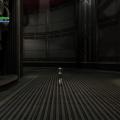-
Posts
67 -
Joined
-
Last visited
Content Type
News Articles
Tutorials
Forums
Downloads
Everything posted by Mr. Dinnertime
-
-
Are you typing fs_game into the console for your client (jamp.exe) or the server (jampded.exe)? If you're typing it into the client then it will tell you what the currently loaded mod is for your client. How are you setting the mod for the server?
-
I didn't personally feel as if it matched the moment. It was the first time that the father and son had seen each other in their entire lives and the music seems more like an interrogation love scene. Maybe that's just me
-
Hi ^^ I don't suppose anybody could help me / offer me any advice for a particular crash? The only mods I've seen this crash occur on are makermod and lugormod. Even after removing all of the pk3s from my lugormod / base folder (assets 0 - 3 are still in my base folder obviously ) it still occurs on lugormod. The crash doesn't occur very often but it will continue until the map changes. This is what the crash looks like: I don't know what sort of things you'd need me to tell you to help you help me. I'm running base jedi academy (jamp) but openjk also gives me the same error. My system specs are: 3.2 Ghz i7 processor 16 GB Corsair Vengeance ram Big Bang X-Power motherboard 256 GB Samsung 840 pro ssd Radeon HD 7950 graphics card Windows 7 Ultimate 64 bit I'm using the 4.5 .NET framework if that matters O-o I have the visual c++ redistributables for 2010 (32 and 64 bit). I presume that's what jedi academy uses.
-
It's client-sided. It works on all servers and any mod which doesn't use its own cgamex86.dll. If the mod does use its own version then I guess it's up to you, if you know enough about what the dll does, to decide whether you want to use it. I'm pretty sure it might work in singleplayer but I haven't tested it.
-

Master Server list Down.
Mr. Dinnertime replied to vince14's topic in Jedi Knight General Discussions
I'm not sure but you can use this until it comes back up It retrieves a list of servers from jkhub's master server. It doesn't have nearly as many servers as ravensoft's but it's better than nothing. -
Annotations ruined it ;o
-
Such majestic. Very art. Wow
-
wow such british very eyebrows wow so poster very beard
-
-
Perfect ^^ thanks very much. I can't believe I didn't think of that.
-
-
Uhh. Yeah. It's me again. Sorry ^^. I would very much like to use the r-rend2 renderer but it will not load and instead reverts back to the original renderer. I've listed my specs in a previous thread but for the sake of simplicity, I'll list them again: qConsole.log: I have rd-rend2_x86.dll inside my GameData folder. The shortcut which I use to run OpenJK with rd-rend2 is: openjk.x86.exe +set logfile "2" +set cl_renderer "rd-rend2"
-
Yes ^^ I seem to have fixed it. Thanks very much for all of your help. When I looked through my qconsole.log, I noticed the The legacy uix86.dll must have been broken I simply copied an unaltered uix86.dll from my base folder into my "My Games\OpenJK\base" folder and it started to work.
-
22:34:28 - "version" is:"JAmp: v1.0.1.0 win-x86 Oct 24 2003" default:"JAmp: v1.0.1.0 win-x86 Oct 24 2003" I've also tried it without any other mods and the crash still occurs.
-
Sorry for the double post but I would still very much like help with this ^^
-
Hmm. I'll back them up first and update this post with the result. Edit: Nope ._. Removing both jaconfig.cfg and jampconfig.cfg in my base folder did nothing to help. My "My Games" folder contained no config files to begin with.
-
Thank you ^^ so it should be. Here's the logfile along with extra info from +set developer 1. Confirmed. I just copied my entire JKA folder over to C:\JKA. openjk.x86.exe was in C:\JKA\GameData and it still crashed.
-
Windows 7 Home Premium 64 Bit 16 GB Corsair Vengeance Ram Samsung 840 Pro SSD (which is also what JKA is installed in) Radeon HD 7950 (Latest drivers installed) i7 3.6 Ghz Processor Big Bang X-Power Motherboard. Sound Card (if it makes a difference) came with my motherboard. I don't believe this is reason to think it's cheap and tacky as the MB was quite expensive. Moving the entire jka directory just to get a mod working isn't even nearly ideal. I like my applications to have structure and order ^^My JKA Directory is C:\aaa_Applications\Games\Lucasarts\Star Wars Jedi Knight III - Jedi Academy\GameData.It works for the original jedi academy perfectly so I'm not sure why this would be an issue. Edit: CCC does not have a profile for openjk.x86.exe.
-
The only contents of My Games\OpenJK were: 1 File called jakey 1 Directory called base 1 File called uix86.dll inside base. Nothing else was in there even after running openjk.x86.exe with a +logfile 2 parameter.
-
GameData\base since I'm now starting it up without an additional +fs_game parameter. I've tried that ^^. It didn't work. I would also personally prefer to not have to start the game up through a different mod than the one I'd like to use due to the way that JKA likes to take the jampconfig.cfg file of the first mod and write it to the newly loaded mod's directory. I don't mean to sound rude but if +set fs_game OpenJK is the only way that it'll work then I don't think this is the mod for me.
-
I don't know what information I can give you. I tried running it through a batch file with +logfile 2 added but no log file was even generated. Running openjk.x86.exe causes the game to attempt to load for a few seconds, followed by the initial console closing, being faced with the opening logo, before gloriously crashing with a window of OpenJK Multiplayer has stopped working... The only information I can give you ( I don't even know whether it'll help) is what event viewer gives me. Information Error Edit: I've also tried several different builds. I can try to give you the build numbers if they're needed. Edit: Steps which I've already tried:Using a different buildDeleting my OpenJK folder in My Documents\My GamesUsing a +fs_game OpenJK startup parameterRunning openjk.x86.exe as an administratorRunning it multiple times to make sure the crash wasn't a fluke?
-
Nice ^^ an alternative to http://jkhub.org/files/file/882-trilogy-sabers-episode-5/. The sounds are nice and clean; I can't hear any background noise. 8/10 The only things I would change (add?) would be: Adding additional sounds for some of the noises which weren't covered such as saberonquick.wav. On a side note: Why did you edit the sabers to add the additional .wav files? Would they not have worked without editing the .sab file?
- 4 comments
-
- JKHub Exclusive
- New Sounds
-
(and 1 more)
Tagged with:
-
-








